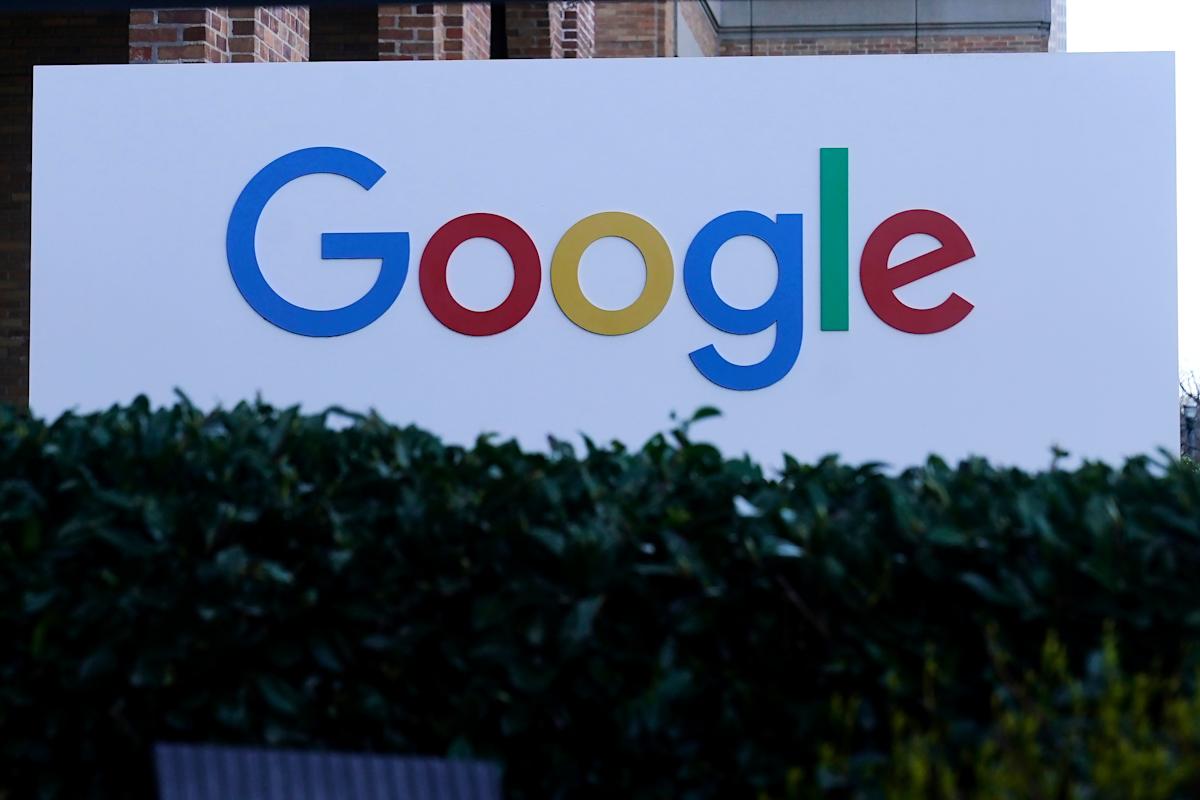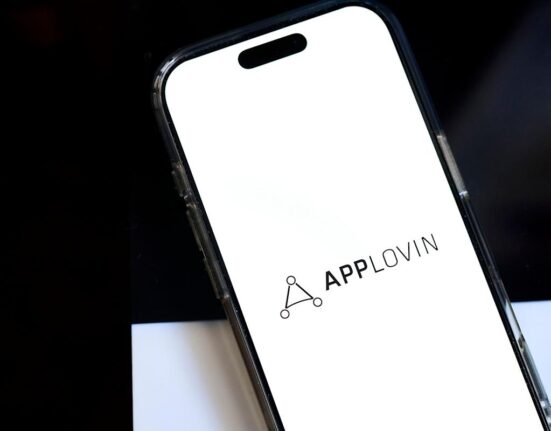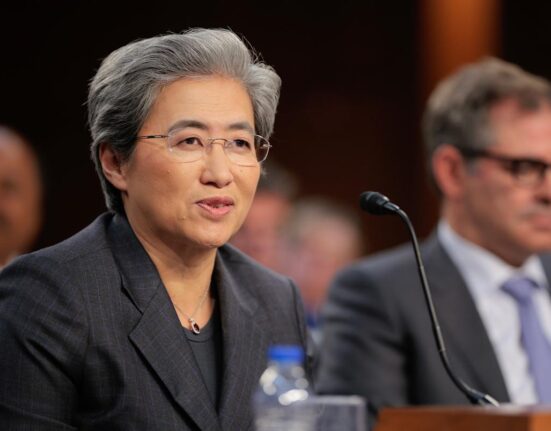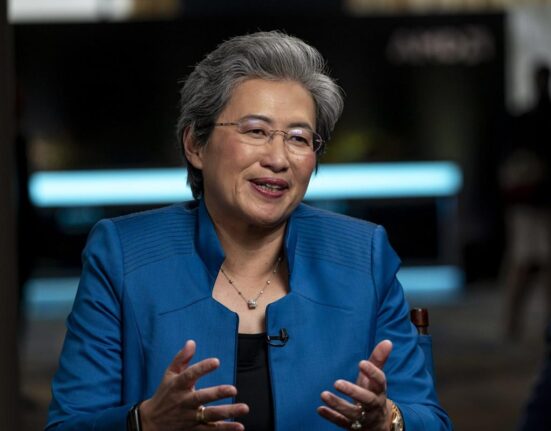The U.S. Supreme Court on Monday refused to protect Google from a year-old order requiring a major makeover of its Android app store that’s designed to unleash more competition against a system that a jury declared an illegal monopoly.
The rebuff delivered in a one-sentence decision by the Supreme Court means Google will soon have to start an overhaul of its Play Store for the apps running on the Android software that powers most smartphones that compete against Apple‘s iPhone in the U.S.
Among other changes, U.S. District Judge James Donato last October ordered Google to give its competitors access to its entire inventory of Android apps and also make those alternative options available to download from the Play Store.
In a filing last month, Google told the U.S. Supreme Court that Donato’s order would expose the Play Store’s more than 100 million U.S. users to “enormous security and safety risks by enabling stores that stock malicious, deceptive, or pirated content to proliferate.”
Google also said it faced an Oct. 22 deadline to begin complying with the judge’s order if the Supreme Court didn’t grant its request for a stay. The Mountain View, California, company was seeking the protection while pursuing a last-ditch attempt to overturn the December 2023 jury verdict that condemned the Play Store as an abusive monopoly.
In a statement, Google said it will continue its fight in the Supreme Court while submitting to what it believes is a problematic order. “The changes ordered by the U.S. District Court will jeopardize users’ ability to safely download apps,” Google warned.
Google had been insulated from the order while trying to overturn it and the monopoly verdict, but the Ninth Circuit Court of Appeals rejected that attempt in a decision issued two months ago.
In its filing with the Supreme Court, Google argued it was being unfairly turned into a supplier and distributor for would-be rivals.
Donato concluded the digital walls shielding the Play Store from competition needed to be torn down to counteract a pattern of abusive behavior. The conduct had enabled Google to to reap billions of dollars in annual profits, primarily from its exclusive control of a payment processing system that collected a 15-30% fee on in-app transactions.
Those commissions were the focal point of an antitrust lawsuit that video game maker Epic Games filed against Google in 2020, setting up a month-long trial in San Francisco federal court that culminated in the jury’s monopoly verdict.
Epic, the maker of the Fortnite game, lost a similar antitrust case targeting Apple’s iPhone app store. Even though U.S. District Judge Yvonne Gonzalez-Rodgers concluded the iPhone app store wasn’t an illegal monopoly, she ordered Apple to begin allowing links to alternative payment systems as part of a shake-up that resulted in the company being held in civil contempt of court earlier this year.
The U.S. Supreme Court on Monday refused to protect Google from a year-old order requiring a major makeover of its Android app store that’s designed to unleash more competition against a system that a jury declared an illegal monopoly.
The rebuff delivered in a one-sentence decision by the Supreme Court means Google will soon have to start an overhaul of its Play Store for the apps running on the Android software that powers most smartphones that compete against Apple‘s iPhone in the U.S.
Among other changes, U.S. District Judge James Donato last October ordered Google to give its competitors access to its entire inventory of Android apps and also make those alternative options available to download from the Play Store.
In a filing last month, Google told the U.S. Supreme Court that Donato’s order would expose the Play Store’s more than 100 million U.S. users to “enormous security and safety risks by enabling stores that stock malicious, deceptive, or pirated content to proliferate.”
Google also said it faced an Oct. 22 deadline to begin complying with the judge’s order if the Supreme Court didn’t grant its request for a stay. The Mountain View, California, company was seeking the protection while pursuing a last-ditch attempt to overturn the December 2023 jury verdict that condemned the Play Store as an abusive monopoly.
In a statement, Google said it will continue its fight in the Supreme Court while submitting to what it believes is a problematic order. “The changes ordered by the U.S. District Court will jeopardize users’ ability to safely download apps,” Google warned.
Google had been insulated from the order while trying to overturn it and the monopoly verdict, but the Ninth Circuit Court of Appeals rejected that attempt in a decision issued two months ago.
In its filing with the Supreme Court, Google argued it was being unfairly turned into a supplier and distributor for would-be rivals.
Donato concluded the digital walls shielding the Play Store from competition needed to be torn down to counteract a pattern of abusive behavior. The conduct had enabled Google to to reap billions of dollars in annual profits, primarily from its exclusive control of a payment processing system that collected a 15-30% fee on in-app transactions.
Those commissions were the focal point of an antitrust lawsuit that video game maker Epic Games filed against Google in 2020, setting up a month-long trial in San Francisco federal court that culminated in the jury’s monopoly verdict.
Epic, the maker of the Fortnite game, lost a similar antitrust case targeting Apple’s iPhone app store. Even though U.S. District Judge Yvonne Gonzalez-Rodgers concluded the iPhone app store wasn’t an illegal monopoly, she ordered Apple to begin allowing links to alternative payment systems as part of a shake-up that resulted in the company being held in civil contempt of court earlier this year.












Leave feedback about this